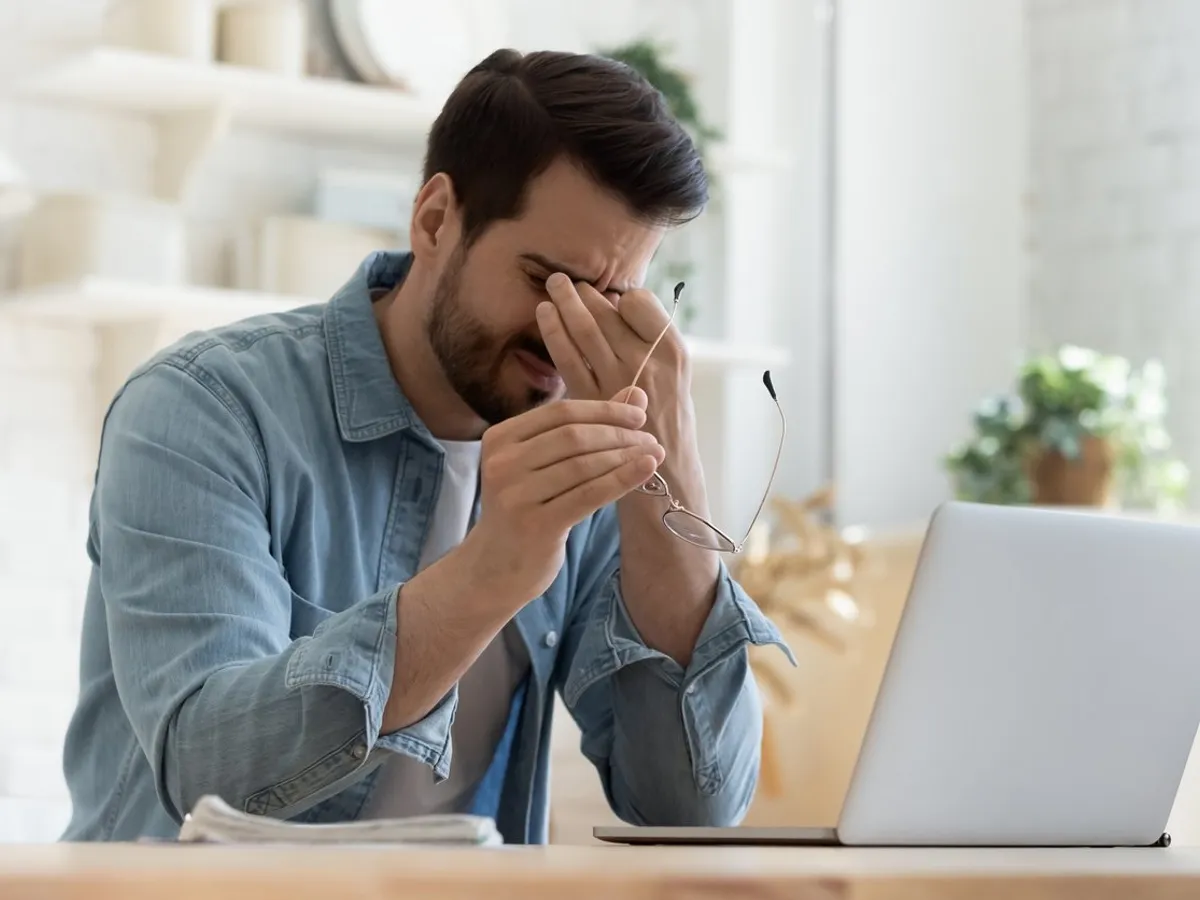New Delhi, 26 August 2025: Our eyes are among the most vital organs, yet many of us unknowingly expose them to harm through common daily habits. While these routines may seem harmless—or even necessary—they can contribute to eye strain, discomfort, or long-term damage if left unchecked.
Here are five everyday habits that could be silently damaging your vision and what you can do to protect your eyes.
1. Excessive Screen Time Without Breaks
Whether for work, study, or entertainment, prolonged screen exposure has become a normal part of modern life. However, constantly staring at digital screens—be it a computer, phone, or tablet—can lead to a condition called digital eye strain or computer vision syndrome.
Symptoms include:
- Dry or irritated eyes
- Blurred vision
- Headaches
- Neck and shoulder pain
The problem isn’t just the screen itself—it’s the reduced blink rate. On average, we blink around 15–20 times per minute, but that number drops by up to 50% when staring at a screen, leading to dry and fatigued eyes.
Solution:
Follow the 20-20-20 rule: Every 20 minutes, look at something 20 feet away for at least 20 seconds. Adjust screen brightness and contrast to comfortable levels, and use artificial tears if dryness persists
2. Rubbing Your Eyes
It may feel soothing, especially when you’re tired or have an itch, but rubbing your eyes can do more harm than good. The pressure from rubbing can damage the delicate blood vessels around the eyes and, over time, weaken the corneal structure.
In some cases, frequent rubbing is linked to keratoconus, a condition where the cornea thins and bulges into a cone shape, impairing vision. Moreover, our hands carry countless germs, and rubbing can introduce bacteria or viruses into the eyes, increasing the risk of infection.
Solution:
If your eyes are itchy, try using lubricating eye drops or a cold compress instead. Always wash your hands before touching your face and avoid rubbing out of habit.
3. Not Wearing Sunglasses Outdoors
Many people skip sunglasses unless it’s extremely sunny—but UV exposure can damage the eyes even on cloudy days. Just like skin, the eyes can suffer from long-term sun damage. Conditions linked to prolonged UV exposure include:
- Cataracts
- Macular degeneration
- Photokeratitis (a sunburn of the eye)
- Pterygium (a growth on the white part of the eye)
Sunglasses are not just a fashion accessory—they’re a shield against harmful ultraviolet rays.
Solution:
Wear sunglasses that block 100% of UVA and UVB rays, even when it’s overcast. Wide-framed or wrap-around styles provide the most comprehensive protection.
4. Sleeping With Makeup On
If you wear makeup—especially mascara, eyeliner, or eyeshadow—falling asleep without removing it can lead to serious eye problems. Leftover cosmetics can clog the tiny oil glands along your eyelids, leading to conditions like blepharitis (inflammation of the eyelid) or styes.
Particles from makeup can also migrate into the eye overnight, causing irritation, redness, or infection.
Solution:
Always remove eye makeup thoroughly before bed using a gentle cleanser or micellar water. Avoid using expired products and never share eye makeup to reduce the risk of contamination.
5. Overusing Eye Drops
While over-the-counter eye drops can offer quick relief from redness or dryness, using them too frequently—especially those labeled “redness relief” or vasoconstrictors—can backfire. These drops work by narrowing blood vessels, but prolonged use may lead to rebound redness or dependency.
In other cases, people rely on drops to mask symptoms rather than address the root cause of discomfort.
Solution:
Use eye drops only as directed, and choose preservative-free artificial tears if you need long-term lubrication. If you’re reaching for drops daily, consult an eye care professional to identify the underlying issue.
Skipping Regular Eye Exams
One of the most overlooked eye-care habits is avoiding routine eye checkups. Many eye conditions—like glaucoma or macular degeneration—develop silently and can progress without noticeable symptoms until significant damage has occurred.
Solution:
Schedule a comprehensive eye exam at least once every one to two years, or more frequently if you have risk factors such as diabetes, high blood pressure, or a family history of eye disease.
Your eyes work hard every day – whether you’re focused on screens, outdoors in bright light, or simply trying to wind down before bed. Being mindful of these everyday habits can go a long way in preserving your vision and avoiding preventable damage.
Small changes – like taking screen breaks, wearing sunglasses, or simply removing makeup before sleep – can make a big difference. Prioritize your eye health now, and your future self will thank you.






